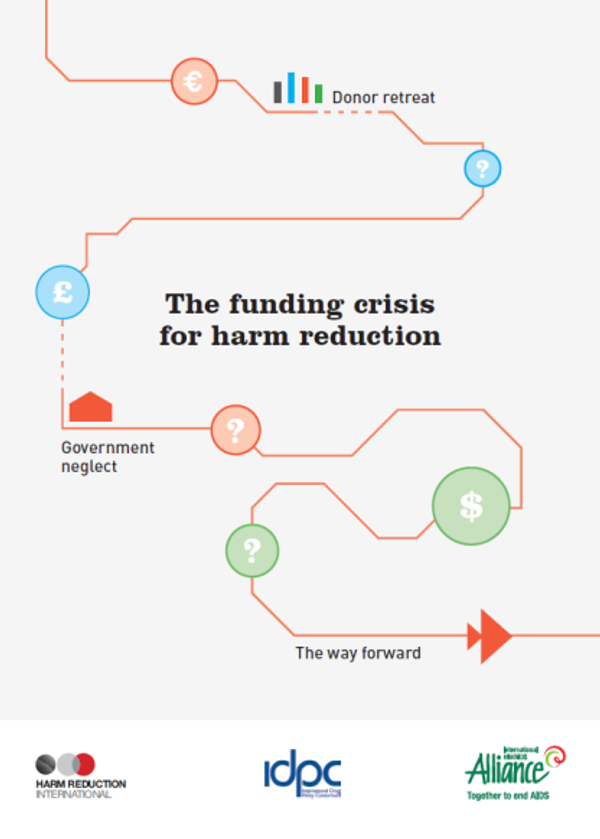Global bid to end AIDS is being undermined by funding crisis for harm reduction
To coincide with the 20th International AIDS Conference taking place in Melbourne, Harm Reduction International (HRI), the International Drug Policy Consortium (IDPC) and the International HIV/AIDS Alliance have issued a report with a stark warning: global funding for HIV prevention for people who inject drugs is in crisis. Donor withdrawal from certain countries, government neglect of people who use drugs, and overspending on drug enforcement are a “perfect storm”, and it will be impossible achieve an ‘AIDS-free generation’ without concerted action. A continued failure to invest in harm reduction will bring an exponential rise in HIV transmission which in turn will cause additional costs to government health sectors.
The report – entitled The Funding Crisis for Harm Reduction: Donor Retreat, Government Neglect and the Way Forward – highlights that an estimated US$ 2.3 billion is needed in 2015 alone to fund HIV services for people who inject drugs around the world, yet at the last count just US$ 160 million was being invested by international donors. At the same time, changes within the Global Fund to Fight AIDS, Tuberculosis and Malaria threaten to significantly reduce future allocations for harm reduction – particularly in middle-income countries (such as those across much of Eastern Europe and Asia), who are seemed to be “over-allocated” in terms of how much funding they have received over the last decade.
By focusing their decisions on a country’s income status (as defined by the World Bank), major donors (such as the Global Fund and DFID) are making the huge assumption that some governments are able and willing to pay for their own HIV responses. Yet all too often, middle-income country governments are simply not ‘willing’ to meet the needs of people who use drugs – and successful services face closure or cut-backs as a result. Perversely, the national spend on ineffective drug law enforcement in these countries often dwarfs what is needed for harm reduction. Globally, just one tenth of the US$ 100 billion drug enforcement expenditure for one year would fund global HIV prevention for people who inject drugs for four years!
The report recommends changes in international donor priorities to address the crisis, and calls for greater national spending in cost effective harm reduction interventions. This is the case now more than ever in a time of financial austerity around the globe – existing public funds need to be spent more strategically. In the accompanying press release, Ann Fordham (IDPC Executive Director) states “The money is available to make real progress in the response to HIV, but too often governments would rather punish people who need support. The figures are clear: we must demand more accountability for how funds are spent”.
Jamie Bridge, IDPC Senior Policy and Operations Manager
Regions
Related Profiles
- International Drug Policy Consortium (IDPC)
